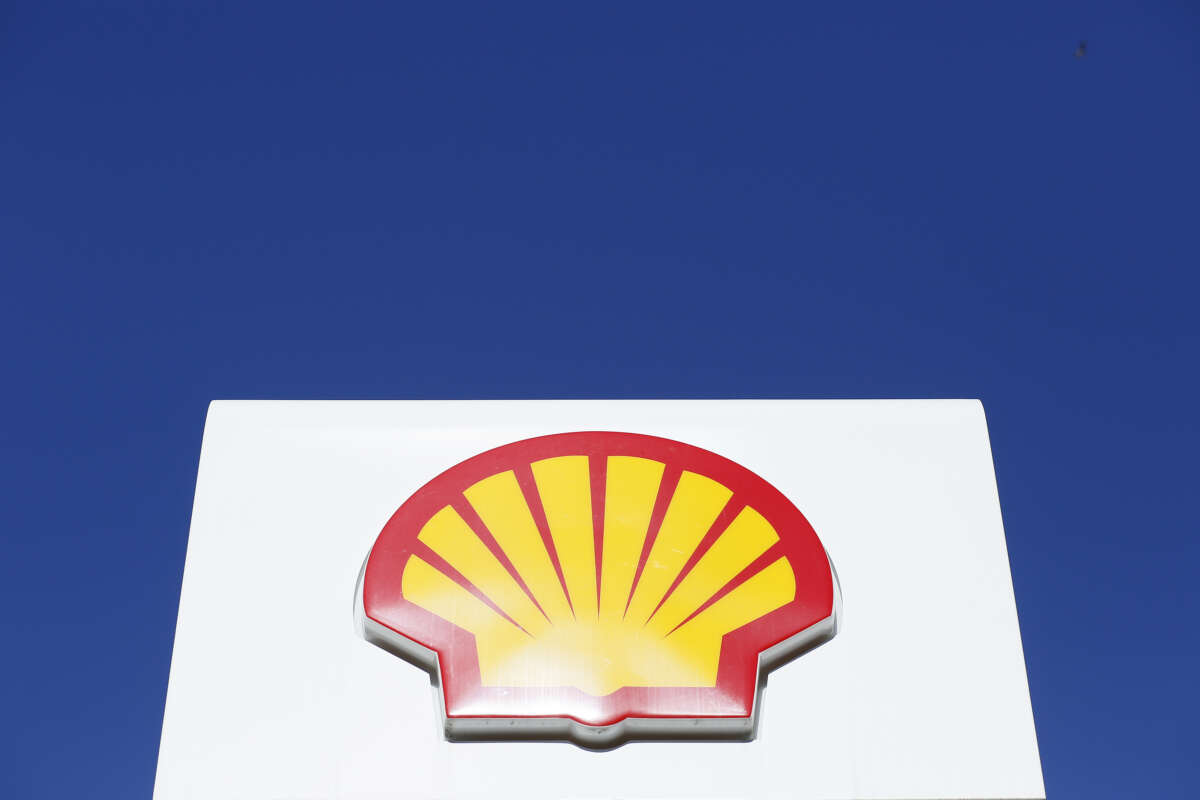Honest, paywall-free news is rare. Please support our boldly independent journalism with a donation of any size.
Shell announced Wednesday that it is raising payouts to wealthy shareholders and scrapping plans to cut oil production by up to 2% annually, a move that environmental groups said lays bare the futility of relying on fossil fuel corporations to voluntarily curb their climate-destroying activities.
The London-based company, which more than doubled its annual profits last year, said in a press release that it now intends to “achieve cash flow longevity” by keeping oil production stable until 2030 and boosting gas production, even as scientists say a rapid phaseout of fossil fuels is necessary to avert global climate destruction.
“It is unacceptable that Shell is betting on even more short-term returns to appease shareholders,” said Sjoukje van Oosterhout, Climate Case Shell’s lead researcher. “Shell is now throwing in the towel on reducing oil production and even scaling up gas production.”
Shell also announced Wednesday that it is hiking its dividend by 15%, a change that’s set to take effect this quarter. In an additional gift to shareholders, the company said it plans to buy back at least $5 billion of its own stock in the second half of 2023.
“Record profits, off the back of the energy crisis, should be boosting up green investment,” Jonathan Noronha-Gant, a senior campaigner at Global Witness, said in a statement Wednesday. “Instead it’s shareholder pay-outs and a doubling down on climate-wrecking fossil fuels.”
Shell had previously said its oil and gas production would fall by 1-2% each year through 2030. But as Bloomberg reported, Shell justified the newly announced shift by claiming it “achieved its initial output-reduction plan — announced in 2021 amid a focus on cutting carbon emissions — faster than anticipated.”
Noronha-Gant called Shell’s announcement a “climate bombshell” that “exposes the hollowness behind the setting of such a target.”
“It will always be profit over people and planet for polluters,” Noronha-Gant said Wednesday. “Shell simply cannot be trusted — with either their own meager targets or our futures.”
Others responded with similar outrage. Climate scientist Bill McGuire wrote on Twitter that Shell CEO Wael Sawan “knows exactly what the consequences of this decision are.”
“People will die — are already dying,” McGuire tweeted. “I want to see him jailed — along with all the other CEOs who have been unequivocally complicit in crimes against humanity. And so should you.”
We can’t rely on oil companies that knowingly caused the #ClimateCrisis to do the right thing voluntarily…
If they have to decide between their economic bottom line and the survival of our communities, their greed will win out every time.https://t.co/3hm25DQugh
— Climate Justice Alliance (CJA) 🌻 (@CJAOurPower) June 14, 2023
Shell’s announcement comes weeks after Carbon Brief released an analysis highlighting the oil giant’s tacit admission that limiting warming to 1.5°C by the end of the century means an “immediate end to fossil fuel growth.”
“Shell had previously claimed that oil and gas production could rise for another decade, even as warming was limited to 1.5°C,” Carbon Brief observed. “The dramatic shift in its new ‘Energy Security Scenarios’ is not explicitly acknowledged, but… is hidden in plain sight.”
“The immediate end to fossil fuel growth in Shell’s new 1.5°C scenario marks a dramatic shift from its earlier work, which had squared the circle between limiting warming to 1.5°C and continuing to expand oil and gas production by invoking implausibly-large forest expansion,” Carbon Brief added.
Shell insisted Wednesday that it is “aiming to achieve near-zero methane emissions by 2030” and “net-zero emissions by 2050,” but research released earlier this week showed that such commitments are often meaningless because companies rarely outline specific steps they plan to take to achieve their stated targets.
Last month, Friends of the Earth Netherlands published a report accusing Shell of overstating its spending on renewable energy solutions by including “the sale of flowers and sandwiches at its gas stations” in the total, along with “biofuels with a high carbon footprint.”
“The company continues to contribute to catastrophic climate change,” the group concluded.
Press freedom is under attack
As Trump cracks down on political speech, independent media is increasingly necessary.
Truthout produces reporting you won’t see in the mainstream: journalism from the frontlines of global conflict, interviews with grassroots movement leaders, high-quality legal analysis and more.
Our work is possible thanks to reader support. Help Truthout catalyze change and social justice — make a tax-deductible monthly or one-time donation today.
